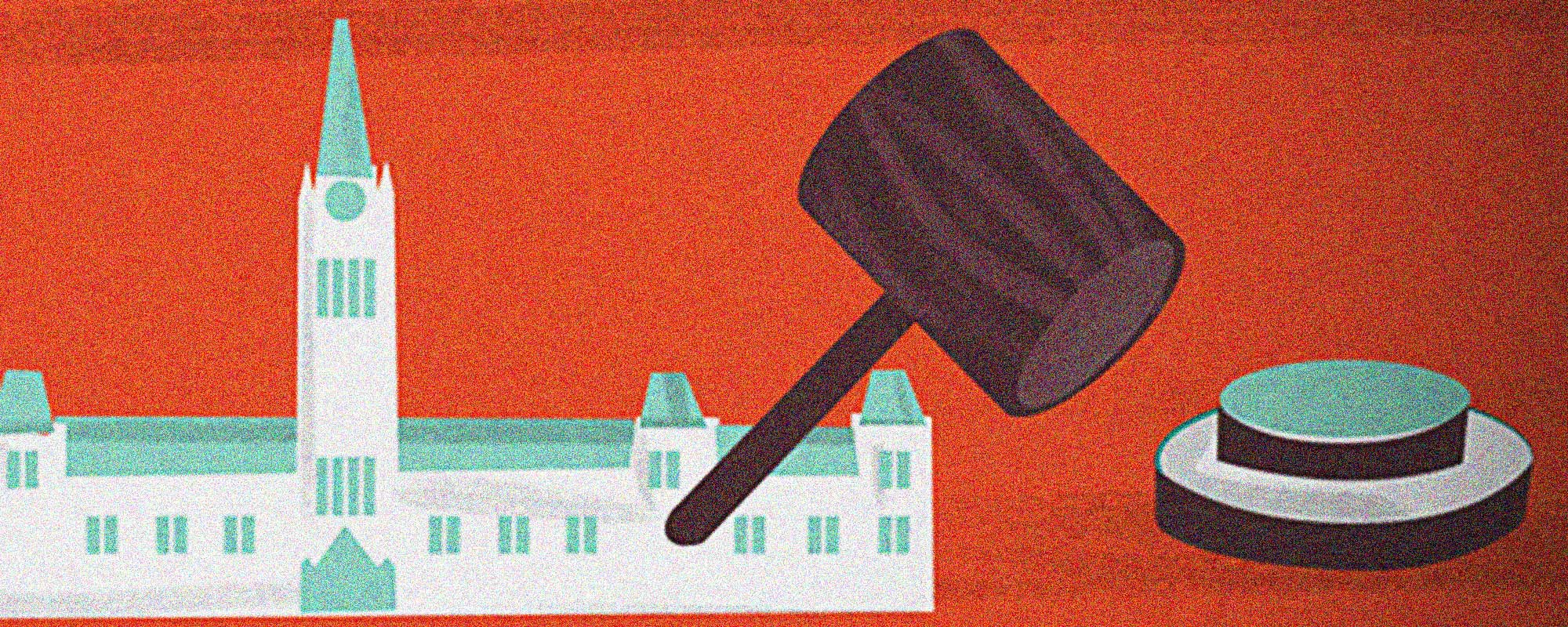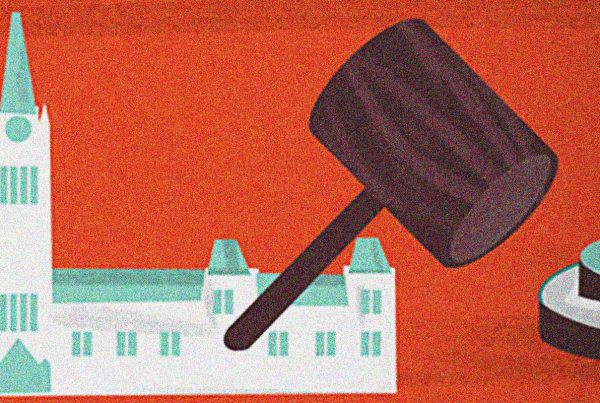TalkRights features content produced by CCLA volunteers and interviews with experts in their own words. Opinions expressed here do not necessarily represent the CCLA’s own policies or positions. For official publications, key reports, position papers, legal documentation, and up-to-date news about the CCLA’s work check out “THE LATEST” section of our website.
Being convicted of an offense in the Criminal Code has the potential for imprisonment.[1] Because of this, criminal laws and their application engage one of the most important civil liberties protected under the Canadian Charter of Rights and Freedoms–our very right to liberty. Section 7 of the Canadian Charter of Rights and Freedoms states that “Everyone has the right to life, liberty and security of the person and the right not to be deprived thereof except in accordance with the principles of fundamental justice”.[2] The Criminal Code does not have specific offenses relating to HIV non-disclosure.[3] Instead HIV non-disclosure has been criminalized through the use of other offenses. Most notably, HIV non-disclosure cases have been prosecuted through the use of aggravated assault and aggravated sexual assault.[4] A person can be charged with the offense of assault when they “apply force intentionally to another person, directly or indirectly” without the consent of the other person. When that force is sexual in nature, a person can be charged with sexual assault. A more severe offense of aggravated assault/sexual assault is used when the assault endangers the life of the other person.[5] So, HIV non-disclosure cases have been prosecuted under the offense of aggravated assault/sexual assault because the non-disclosure of the HIV-positive person’s HIV status is seen as a fraudulent act that invalidates the HIV-negative person’s consent to the sexual activity. The offense is further aggravated because the serious health consequences associated with HIV are seen as endangering the life of the HIV-negative person.[6],[7] The landmark case that set the stage for the criminalization of HIV non-disclosure is called R v Cuerrier, which was decided in 1998. In this case, the Supreme Court of Canada (SCC) held that failure to disclose one’s HIV-positive status to a sexual partner can lead to a conviction of aggravated assault because non-disclosure is effectively a form of fraud that invalidates the sexual partner’s consent to the sexual activity.[8],[9],[10] The SCC revisited the criminalization of HIV non-disclosure in 2012 in two companion cases that were decided together: R v Mabior and R v D(C), which are more commonly known as Mabior. Mabior refined the ruling in R v Cuerrier and set out the current test for establishing when HIV non-disclosure can be criminalized. The SCC decided that consent will be invalidated and an HIV-positive person can be convicted of assault or sexual assault when all of the following 3 criteria are met:
- The HIV-positive person does not disclose or misrepresents their HIV status while knowing they are positive and at risk of transmission
- The sexual activity engaged in causes or poses a significant risk of serious bodily harm
- The HIV-negative sexual partner would not have consented to the sexual activity had they known of the HIV-positive person’s status[11],[12]
Criteria 1 and 3 are relatively straightforward, but criteria 2 is a bit more complicated. Criteria 2 is easily met when HIV transmission actually occurs because the sexual activity is seen as causing serious bodily harm. But, what happens when HIV transmission does not occur? The SCC decided that the sexual activity “poses a significant risk of serious bodily harm” if there is a “realistic possibility of transmission”.[13],[14] The SCC’s decision helps us understand when there is not a realistic possibility of transmission: when an individual’s viral load is low (<1500 copies per mL of blood)[15] or undetectable (<50 copies per mL of blood)[16] and condom protection was used during the sexual activity.[17] Effectively, this means that a person has no duty to disclose their HIV-positive status when their viral load is low or undetectable and a condom is used during the sexual activity.[18] However, the SCC has left it open to provincial courts dealing with HIV non-disclosure cases to determine when there is a realistic possibility of transmission or to determine other circumstances where there is not a realistic possibility of transmission based on expert medical testimony presented on a case by case basis.[19],[20] The decision in Mabior and the criminalization of HIV non-disclosure in Canada’s justice system, generally, has been criticized for its disproportionate impact on people from marginalized backgrounds, such Indigenous, Black and gay persons, and for its failure to keep up with advancements in medical research and treatment that have changed our understanding of HIV transmission risks.[21],[22] However, on December 8, 2018, the Attorney General of Canada responded to this by issuing a directive on how HIV non-disclosure cases should be prosecuted in order for the criminal law to play an appropriate role in the management of HIV as a public health issue that is in line with current medical science. The directive states the following: ” I direct the Director of Public Prosecutions as follows: (a) The Director shall not prosecute HIV non-disclosure cases where the person living with HIV has maintained a suppressed viral load, i.e., under 200 copies per ml of blood, because there is no realistic possibility of transmission. (b) The Director shall generally not prosecute HIV non-disclosure cases where the person has not maintained a suppressed viral load but used condoms or engaged only in oral sex or was taking treatment as prescribed, unless other risk factors are present, because there is likely no realistic possibility of transmission. (c) The Director shall prosecute HIV non-disclosure cases using non-sexual offences, instead of sexual offences, where non-sexual offences more appropriately reflect the wrongdoing committed, such as cases involving lower levels of blameworthiness. (d) The Director shall consider whether public health authorities have provided services to a person living with HIV who has not disclosed their HIV status prior to sexual activity when determining whether it is in the public interest to pursue a prosecution against that person.”[23] Because this directive is coming from the Attorney General of Canada, it is only binding on federal Crown prosecutors. Therefore, it only directly affects the prosecution of HIV non-disclosure cases in the Territories because the criminal law in the Territories is administered by federal Crown prosecutors, whereas the criminal law in the Provinces is administered by provincial Crown prosecutors.[24] It is yet to be seen if, when, and how the Attorneys General of each Province will follow this directive.
[1] Criminal Code, RSC 1985, c C-46 [Criminal Code].
[2] Canadian Charter of Rights and Freedoms, s 7, Part I of the Constitution Act, 1982, being Schedule B to the Canada Act 1982 (UK), 1982, c 11.
[3] Department of Justice Canada, HIV Non-Disclosure and the Criminal Law (Fact Sheet) (Ottawa: Department of Justice Canada, 2017) [DOJ Canada Fact Sheet].
[4] Ibid.
[5] Criminal Code, supra note 1, at ss 265, 268(1), 273(1).
[6] DOJ Canada Fact Sheet, supra note 3.
[7] Department of Justice Canada, Criminal Justice System’s Response to Non-Disclosure of HIV (Report) (Ottawa: Department of Justice Canada, 2017) at p 11 [DOJ Canada Report].
[8] R v Cuerrier, [1998] 2 SCR 371, 162 DLR (4th) 513.
[9] DOJ Canada Report, supra note 7, at p 11.
[10] David Parry, “HIV/AIDS Introduction” (2011) 5 McGill JL & Health 3.
[11] R v Mabior, 2012 SCC 47, [2012] 2 SCR 584 [Mabior].
[12] DOJ Canada Report, supra note 7, at ps 11-13.
[13] Mabior, supra note 11.
[14] DOJ Canada Report, supra note 7, at ps 11-13.
[15] Mabior, supra note 11, at para 100.
[16] Ibid.
[17] Mabior, supra note 11.
[18] DOJ Canada Report, supra note 7, at p 12.
[19] Mabior, supra note 11, at paras 95, 104.
[20] DOJ Canada Report, supra note 7, at ps 12-13.
[21] Ibid at ps 28-31.
[22] Directive (Attorney General of Canada), (2018) C Gaz I, 4322-4324 (Volume 152, Number 49)
[23] Directive (Attorney General of Canada), (2018) C Gaz I, 4322-4324 (Volume 152, Number 49)
[24] Desmond Brown, “Justice Department issues new guidelines on prosecution for non-disclosure of HIV status”, CBC News (2 December 2018), online: https://www.cbc.ca/news/canada/toronto/canada-prosecutions-hiv-non-closures-cases-1.4929292
About the Canadian Civil Liberties Association
The CCLA is an independent, non-profit organization with supporters from across the country. Founded in 1964, the CCLA is a national human rights organization committed to defending the rights, dignity, safety, and freedoms of all people in Canada.
For the Media
For further comments, please contact us at media@ccla.org.




